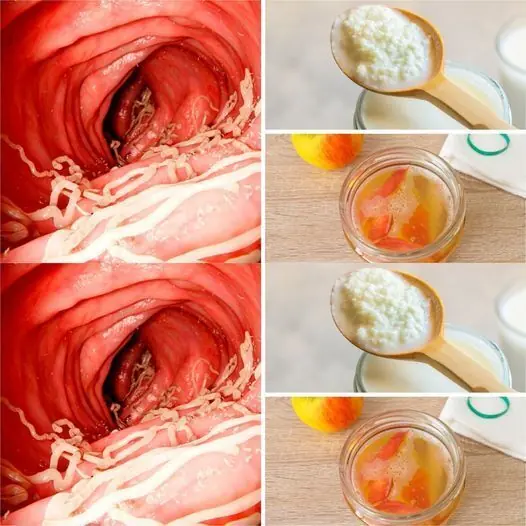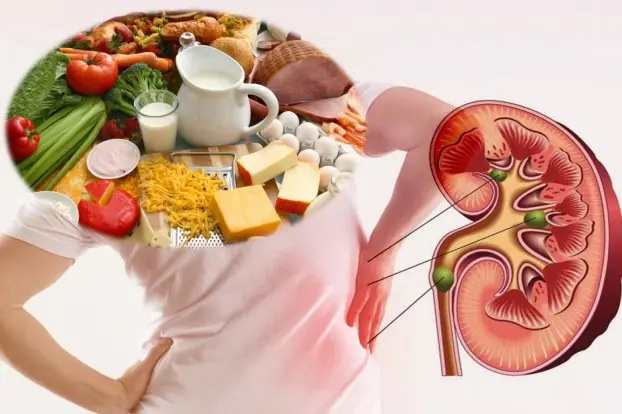
Not Just Salt: Foods Kid.ney Patients Should Avoid for a Longer Life
Not Just Salt: Foods Kid.ney Patients Should Avoid for a Longer Life
Kid.ney patients must choose healthy foods and control their daily portions.

How Should Kidney Patients Eat for Better Health?
In recent years, kidney-related issues have become one of the leading causes of high mortality rates.
According to medical experts, the kidneys play a vital role in the urinary system by filtering blood. Each day, the kidneys filter about 200 liters of fluid, removing waste as urine. Typically, a person excretes about 2 liters of urine per day while reabsorbing the remaining 198 liters. The kidneys also help regulate the body's fluid and electrolyte balance, including essential minerals like sodium and potassium.
To maintain kidney function, patients should not only follow their doctor's treatment plan but also choose healthy foods and monitor their daily intake. Proper energy balance is crucial for kidney patients. Eating slowly and chewing thoroughly aids digestion, whereas eating too quickly may lead to overeating, excess calorie intake, and increased strain on the kidneys.
Additionally, kidney patients can measure food portions before cooking to track calorie intake per meal. Checking nutrition labels on food products can help manage nutrient consumption.
Those with kidney disease should consult a nutritionist for guidance on balancing meals, measuring portions, and determining appropriate daily food intake.
Foods Kidney Patients Should Avoid to Protect Their Health
Reduce Salt Intake
High-sodium foods include fast food, processed and canned foods, seasonings such as fish sauce, soy sauce, and seasoning powder, as well as dried foods like salted fish, dried squid, and instant noodles. Frequent consumption of these foods can impair kidney function and lead to swelling, high blood pressure, and breathing difficulties.
Limit Potassium-Rich Foods
Nutrition experts advise kidney patients to avoid potassium-rich foods such as bananas, carrots, spinach, potatoes, oranges, onions, milk, and dairy products. When kidney function declines, excess potassium accumulates in the blood, increasing the risk of heart attacks or fatal complications.
Avoid Phosphorus-Rich Foods
Besides potassium, high-phosphorus foods should also be limited. These include chocolate, milk, cheese, yogurt, ice cream, organ meats, oysters, sardines, whole-wheat bread, nuts, beans, and beer. Reducing phosphorus intake helps maintain kidney health.
Reduce Protein Consumption
The goal of limiting protein-rich foods is to minimize uric acid absorption. Foods high in protein and uric acid—such as red meat, organ meats, seafood, scallops, and anchovies—should be carefully considered when planning a kidney-friendly diet.
Control Fluid Intake
Fluid restrictions depend on the severity of kidney disease. In early stages (Stages 1 and 2), patients typically do not need to limit water intake and are even encouraged to stay well-hydrated. However, in later stages, controlling water intake becomes necessary. Patients may need to consume drier foods and reduce salt to avoid excess fluid buildup beyond what the kidneys can handle.
Avoid Alcohol
According to the National Kidney Foundation (USA), alcohol consumption can double the risk of chronic kidney disease. Alcohol contains ethanol, which the body metabolizes into acetaldehyde—a toxic substance that damages kidney cells and disrupts fluid balance, leading to acute kidney injury.
Who Is at Risk for Kidney Disease?
Certain individuals are more prone to kidney disease, including those with:
-
Diabetes
-
High blood pressure
-
Glomerulonephritis (kidney inflammation)
-
Genetic conditions like polycystic kidney disease or Alport syndrome
-
Infections, obstructions, or congenital urinary tract disorders
-
Systemic lupus erythematosus (SLE)
-
Prostate enlargement or prostate cancer
-
Long-term use of nonsteroidal anti-inflammatory drugs (NSAIDs) like ibuprofen and ketoprofen, as well as some antibiotics
Kidney disease often remains asymptomatic until it has progressed significantly. Early detection methods include urine tests, blood tests, and regular blood pressure monitoring.
News in the same category


HERE'S WHY YOU SHOULD PUT GARLIC IN YOUR EAR:

3 Abnormal Reactions When Drinking Water That May Signal Li.ver Can.cer Warning Signs

7 Common Signs of Peripheral Facial Nerve Palsy That Many Often Overlook

Man paralyzed overnight, doctor warns of 'silent kill:er'

6 People Who Should Never Eat Red Meat, According to Dietitians

New Study: Can.cer Risk Increases 5-Fold If You Drink That Popular Beverage Every Day

How many eggs should you eat a week?

6 Signs on Your Feet That May Warn of He.art Disease – Don’t Ignore Them

Women Who Exhibit These Signs Have a Truly Weakened Immune System and Are Far More Prone to Severe Complications When Ill

What to Eat for Longevity? A Study of 80,000 Japanese Reveals the Dietary "Formula" for a Healthy, Long Life

Two warning signs of tongue cancer are different from mouth ulcers

This type of drink increases the risk of can:cer by 5 times

People about to have c.a.nc.er often have 3 signs in the neck, early examination still has a chance of treatment

Banana Peel: The Secret of Japanese Women! Make Your Own Anti-Aging Collagen Mask

The Magic of Coffee Grounds and Lemon

Tired of Constant Colds or Weak Immunity?

My Kidneys Were in Danger – Here’s What I Took!

Pumpkin Seeds: A Natural Remedy for Bladder and Prostate Health

Look 18 Even If You’re 70! Potatoes and Egg Whites Anti-Aging Secrets
News Post

Simple tips to clean yellow sweat stains on white shirts

What to Do When You’re on a High Floor During an Earthquake: Simple Yet Crucial Guidelines

Never keep these 4 relics

Your IQ is above 140 if you can find the missing number in 5 seconds!

Discover 5 Incredible Foods That Naturally Eradicate Intestinal Worms and Revitalize Your Gut Health

You're considered high IQ if you can find the mistake in 4 seconds.

HERE'S WHY YOU SHOULD PUT GARLIC IN YOUR EAR:

This Is the Nemesis of Fishy Odor: Add One Spoonful for Tender, Perfectly Seasoned Fish!

Japanese Don't Need Refrigerators: 3 Brilliant Ways to Keep Vegetables Fresh, Proving Their "Smart IQ"

3 Abnormal Reactions When Drinking Water That May Signal Li.ver Can.cer Warning Signs

7 Common Signs of Peripheral Facial Nerve Palsy That Many Often Overlook

From the earthquake in Myanmar, what do experts warn about high-rise buildings?

The air conditioner exploded while running normally, important notes for prevention

Man paralyzed overnight, doctor warns of 'silent kill:er'

Caring for My Over-70 Mother-in-Law for 10 Years; I Went Looking and Discovered an Unbelievable Scene

6 People Who Should Never Eat Red Meat, According to Dietitians

A dog approaches you

New Study: Can.cer Risk Increases 5-Fold If You Drink That Popular Beverage Every Day

How to Naturally Eliminate Dust Mites and Bedbugs from Your Mattress
